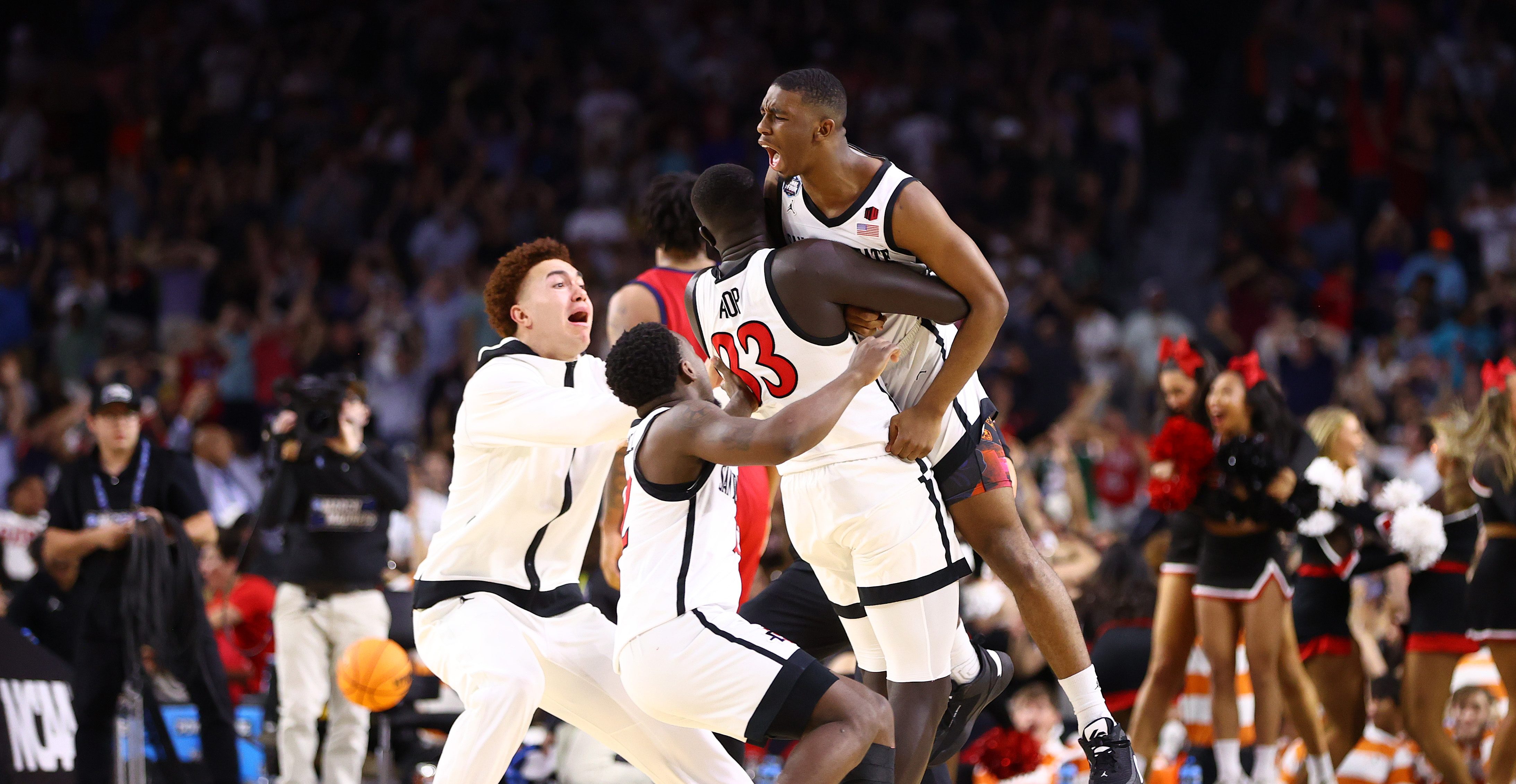The formula seems simple enough: Win. Win big. Win with drama. And once you win, don't get busted for doing something stupid like driving (or skiing) drunk.
But in an age when corporate sponsorships are locked in more than a year before the starter's pistol is even fired, Olympic athletes need to build their brands long before they mount any podiums.
"Twenty years ago, when I was growing up, Mary Lou Retton or Carl Lewis or Dorothy Hamill would go do something spectacular in the Olympics and then get famous and make their money," says Lowell Taub, head of sports endorsements at CAA Sports, the talent agency whose clients include track and field star Sanya Richards-Ross and LeBron James. "The paradigm has completely shifted."
These days companies—whether they're shilling sneakers, sports drinks, cars, gas or checking accounts—spend their Olympic advertising dollars long before the games begin.
"It's mainly an attention span thing," says sports marketing expert Bob Dorfman. "Americans care about the Olympics about a month before, two weeks during and two weeks after. After that these athletes are pretty much forgotten. If you're going to sign an Olympic athlete after the games it's mainly because you're thinking four years down the road because you want to use them leading into the next games."
"Most Olympic sports are top of mind two weeks every four years."
So how does an athlete today become the next Bruce Jenner?
SportsWrap
The top sports headlines of the day
Rule #1: Lead the Twitterati
Social media is by far the biggest game changer in this year's Olympics.
Brands want athletes who can influence consumers through social media in addition to more traditional (and far more expensive) stunts like cereal boxes, magazine spreads and TV commercials. More importantly, they want athletes who come with a built-in audience.
Dave Mingey, co-founder of sports brand consultants Glideslope, says brands rank athletes based on their social media influence.
"If you were to take Tyson Gay—I believe he has roughly 30,000 followers on Twitter—he's an individual athlete in a very noted event [men's 110m sprint]. Now take someone like Hope Solo on the U.S. women's soccer team—it's a team sport, the potential of medaling depends on the performance of a lot of athletes—but she has more than 430,000 followers," says Mingey.
“Marketers these days regardless of sport are trying to do more with less."
Rule #2: Leave People's Jaws on the Floor
Think Usain Bolt flying across the finish line at the 2008 Beijing Games, strides ahead of other runners. Or Michael Phelps, who gold medaled in all eight events he competed in.
Olympic athletes become icons when they transcend their sport.
"If someone beats Usain Bolt—there's a star right now. If Ryan Lochte gets the upper hand on Michael Phelps—there's your star right now," says Patrick Quinn, athlete relations partner at Chicago Sports & Entertainment Partners, an agency that specializes in the Olympics.
Rule #3: Win in a Sport People Watch
The first thing marketers do, says Dan Levy, who heads up the Olympic roster at Wasserman Media Group, is look at which Olympic events NBC will cover on primetime.
"The traditional glamour sports in the Summer Games are gymnastics, track and field, men's basketball and, now, beach volleyball,” Levy says.
"It does matter if they're a fencer or a swimmer," he says. "You can have the most amazing story ever but struggle getting eyeballs."
Patrick Quinn adds that athletes in sports like swimming have a huge advantage because there are so many events, which means multiplied opportunities for exposure. World champion athletes with just one event are less marketable.
"They may be the Michael Phelps of fencing—but they only have one event," Quinn says. "They're only going to win one medal."
Rule #4: Win With Flair
Who can forget when an 18-year-old Kerri Strug landed her final vault on a sprained ankle at the 1996 Atlanta Games, helping the all-around women’s gymnastics team clinch gold. Even though she wasn't a top scorer on her team, the drama surrounding that one vault was enough to make her an Olympic hero.
“If I recall correctly, the team was going to win anyway,” Quinn says. “But she landed the vault on one foot and her coach carried her out. Do you remember any other athletes from that team?”
Rule #5: Have a Winning Personality, Even If You Lose
In her first Olympic appearance, at the 2008 Beijing Games, U.S. hurdler Lolo Jones clipped the penultimate hurdle and stumbled her way to a disappointing seventh-place finish.
But going into London, Jones—a self-proclaimed virgin who grew up poor and even, at times, homeless—is one of the biggest media darlings on Team USA. Her sponsors include Red Bull, BP, Procter & Gamble, Asics, Oakley and McDonald’s.
"It's definitely been a surprising year for her," says Jones' agent Brandon Swibel of the attention.
"She doesn't have a very strong chance to win the gold medal," says Paul Swangard, managing director of the Warsaw Sports Marketing Center at University of Oregon, "but she has an amazing backstory that people have begun to learn about."
Rule #6: Don't Mess It Up
According to Bob Dorfman, there are three golden rules that vault Olympic athletes to endorsement success: performance, personality and purity. "You have to be clean in terms of drugs and DUIs and all that kind of stuff," he says.
Some forgiveness is granted, Dorfman says, pointing to Michael Phelps' ability to land seven-figure sponsorships despite a DUI and an infamous bong photo. “You can get away with that once or twice but after that you have to at least be contrite and apologize,” says Dorfman. “If you are caught doping obviously that's a huge no-no.”
Rule #7: Make It Back
Let's face it—no one's ever heard of the vast majority of Olympic rookies. To make big money, you have to get to the Games, pique big advertisers’ interest, and then make it back four years later.
Lochte is the leading golden boy going into the London Games. His rivalry with Phelps plays a huge role in his appeal. His fashion-savvy and good looks certainly don’t hurt. But what Lochte has most going for him in terms of marketing appeal is his plan to go to Brazil in 2016 (while Phelps plans to retire after London.)
“Lochte was signed by Speedo through 2016 so they're already thinking about how they would use him in Rio,” Dorfman says.
Rule #8: Capture the Zeitgeist
Yes, there is room for serendipity.
Among the Olympic icon stories are what the Warsaw Center's Paul Swangard calls “the novelties”: the underdog Jamaican bobsleigh team in 1988 and the notoriously untalented British ski jumper Eddie "the Eagle" Edwards that same year.
“They weren't terribly successful but in their own right had a unique novelty effect—they were the flavor of the games that year,” Swangard says. “Neither of those two examples in their day and age had the benefit of all the means of media distribution, but they still cut through the clutter in a unique way.”



